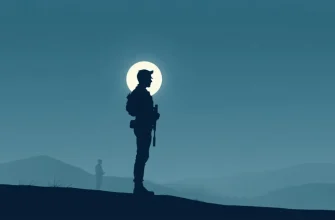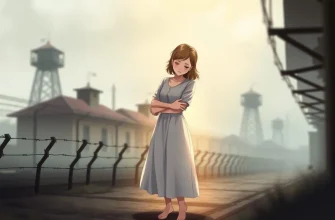In the chilling backdrop of nuclear war, where the world teeters on the brink of destruction, love stories take on a new depth and urgency. This curated collection of melodramas delves into the human spirit's resilience, exploring how love can flourish even when the future seems bleak. Each film in this list not only provides a romantic narrative but also reflects on the profound impact of nuclear threats on personal relationships, making them a must-watch for those intrigued by the intersection of love and survival.

The World, the Flesh and the Devil (1959)
Description: This film explores a love triangle in a post-apocalyptic world where nuclear fallout has left only a few survivors. It delves into themes of isolation, race, and the human need for connection.
Fact: It was one of the first films to address racial issues in a post-apocalyptic setting.
 Watch Now
Watch Now 
Fail Safe (1964)
Description: While primarily a political thriller, Fail Safe includes elements of melodrama as it examines the personal lives of the military personnel involved in a nuclear crisis, highlighting the tension between duty and personal relationships.
Fact: The film was adapted from a novel by Eugene Burdick and Harvey Wheeler, and its plot was inspired by real-life events.
 Watch Now
Watch Now 
Testament (1983)
Description: This film captures the aftermath of a nuclear attack on a small American town, focusing on a mother's struggle to keep her family together amidst the chaos. It's a poignant exploration of love, loss, and the human spirit's resilience.
Fact: Testament was nominated for two Academy Awards and was praised for its realistic portrayal of nuclear aftermath.
 Watch Now
Watch Now 
Threads (1984)
Description: A British television drama, Threads shows the devastating effects of a nuclear war on Sheffield, focusing on two families whose lives are intertwined by love and survival. Its stark realism makes it a standout in this genre.
Fact: The film was so harrowing that it was banned from broadcast in several countries due to its graphic content.
 Watch Now
Watch Now 
The Sacrifice (1986)
Description: Directed by Andrei Tarkovsky, this film is a philosophical exploration of love, sacrifice, and the human condition in the face of an impending nuclear disaster.
Fact: It was Tarkovsky's last film, and he passed away shortly after its completion, adding a poignant layer to its themes of mortality and legacy.
 Watch Now
Watch Now 
On the Beach (1959)
Description: Set in a post-apocalyptic world where nuclear fallout has killed most of humanity, this film follows the last survivors in Australia, exploring their relationships and the inevitability of their fate.
Fact: The film was based on Nevil Shute's novel and was remade in 2000 with a different cast.
 30 Days Free
30 Days Free 
The War Game (1965)
Description: Although not strictly a melodrama, this docudrama explores the potential effects of a nuclear attack on Britain, with a focus on the human cost, including the breakdown of families and relationships.
Fact: It was initially banned by the BBC for being too disturbing but later won an Academy Award for Best Documentary Feature.
 30 Days Free
30 Days Free 
The Bed Sitting Room (1969)
Description: A surreal comedy-drama set in a post-nuclear London, where survivors adapt to a bizarre new reality. The film includes elements of romance amidst the absurdity of their situation.
Fact: It was based on a play by Spike Milligan and John Antrobus, known for their satirical take on societal issues.
 30 Days Free
30 Days Free 
The Day After (1983)
Description: This TV movie depicts the lives of several families in Kansas before, during, and after a nuclear war. It's a heart-wrenching look at how love and community can be tested in the face of global catastrophe.
Fact: It was one of the most-watched television events of all time, sparking widespread public discussion on nuclear war.
 30 Days Free
30 Days Free 
The Last War (1961)
Description: A Japanese film that intertwines the story of a family with the looming threat of nuclear war, showcasing the emotional toll on personal relationships.
Fact: It was one of the first Japanese films to directly address the nuclear threat post-World War II.
 30 Days Free
30 Days Free 








